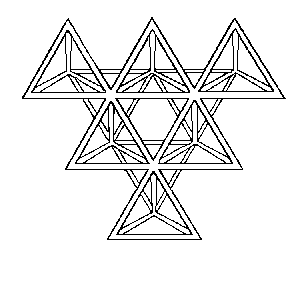"Mirror Worlds... what are they?"They are software models of some chunk of reality, some piece of the real world going on outside your window. Oceans of information pour endlessly into the model (through a vast maze of software pipes and hoses): so much information that the model can mimic the reality's every move, moment-by-moment.
"A Mirror World is some huge institution's moving, true-to-life mirror image trapped inside a computer -- where you can see and grasp it whole. The thick, dense, busy subworld that encompasses you is also , now, an object in your hands...
"The software model of your city, once it's set up, will be available (like a public park) to however many people are interested, hundreds of thousands or millions at the same time. It will show each visitor exactly what he wants to see -- it will sustain a million different focuses on the city simultaneously". --David Gelernter (from the book).
"Technology doesn't flow smoothly; it's the big surprises that matter, and Yale computer expert David Gelernter sees one such giant leap right on the horizon. Today's small scale software programs are about to be joined by vast public software works that will revolutionize computing and transform society as a whole. One such program is the 'Mirror World'.
"Imagine looking at your computer screen and seeing reality -- an image of your city, for instance, complete with moving traffic patterns, or a picture that sketches the state of an entire far-flung corporation at this second. These representations are called Mirror Worlds, and according to Gelernter they will soon be available to everyone. Mirror Worlds are high-tech voodoo dolls: by interacting with the images, you interact with reality. Indeed, Mirror Worlds will revolutionize the use of computers, transforming them from (mere) handy tools to crystal balls which will allow us to see the world more vividly and see into it more deeply. Reality will be replaced gradually, piece-by-piece, by a software imitation; we will live inside the imitation. The surprising thing is, this will be a great humanistic advance. We gain control over our world, plus a huge new measure of insight and vision.
"In this fascinating book -- part speculation, part explanation -- Gelernter takes us on a tour of the computer technology of the near future. Mirror Worlds, he contends, will allow us to explore the world in unprecedented depth and detail without ever changing out of our pajamas. A hospital administrator might wander through an entire medical complex via a desktop computer. Any citizen might explore the performance of the local schools, chat electronically with teachers and other Mirror World visitors, plant software agents to report back on interesting topics, decide to run for the local school board, hire a campaign manager, and conduct the better part of the campaign itself -- all by interacting with the Mirror World.
"Gelernter doesn't just speculate about how this amazing new software will be used -- he shows us how it will be made, explaining carefully and in detail how to build a Mirror World using technology already available. We learn about 'disembodied machines', 'trellises', 'ensembles', and other computer components which sound obscure, but which Gelernter explains using familiar metaphors and terms. (He tells us that a Mirror World is a microcosm just like a Japanese garden or a Gothic cathedral, and that a computer program is translated by the computer in the same way a symphony is translated by a violinist into music.)
"Mirror Worlds offers a lucid and humanistic account of the coming software revolution, told by a computer scientist at the cutting edge of his field". [jacket blurb, US hbk, 1991]
"A magically elegant vision of mirroring real systems (such as a town or hospital) with parallel real-time virtual models as a means of overseeing, managing, and exploring them". --Kevin Kelly (in Out of Control: The New Biology of Machines , US hbk, 1994).
"Where world-gaming and virtual reality intersect. A fascinating idea. The implications could be awesome. Watch this channel". --Henry W.Targowski (in Mark/Space , 1995).
Recommended.
